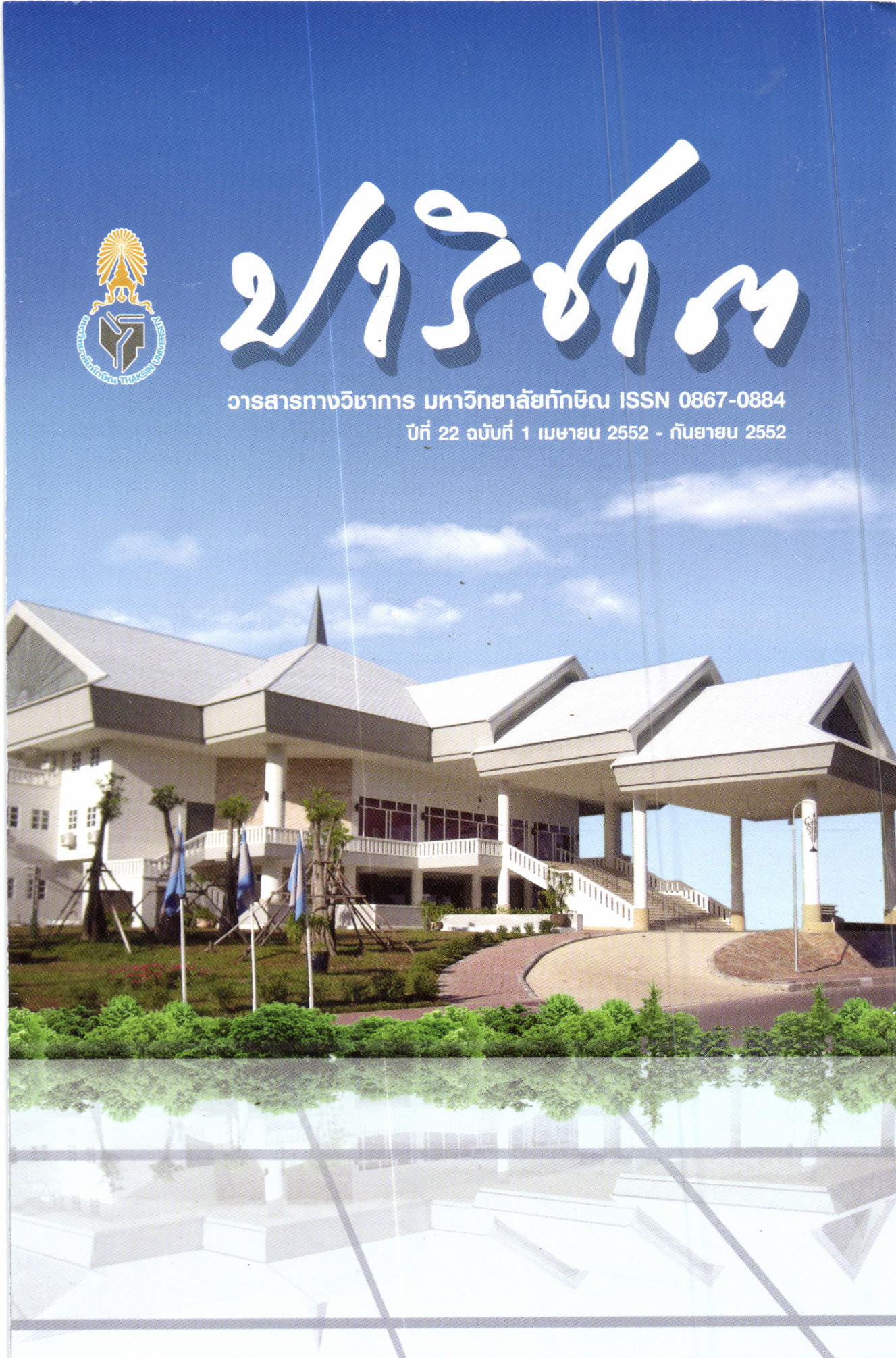ผลกระทบจากการเปิดการค้าเสรีที่มีต่อตลาดข้าวโพดเลี่ยงสัตว์ในประเทศไทย
Main Article Content
Abstract
The objectives of tbis study were to study the production and marketing of maize io Thailand and study the impacts of free trade of maize under WTO agreements and Ayeyawady-Chao phraya_ Mekong Economic Cooperation srrategy (AcMECs). The model was built by using the time series data during the years between 1989-200?, the simultaneous equation system of5 equations was set consisting of maize planted iuea, maize yield, demand for domestic processed maize mea[, demand tbr import maize meal and p ce equations. The coefticients were estimated by Two Stage Least squares. These elasticities werc used to evaruate the impacts of free trade of maize under wro agreements and Ayeyawady-Chao Phraya-Mekong Economic Cooperation Srrategy (ACMECS).
The results ofthis research indicate a declining trend in maize planted areas but ising in output per rai with a slighr change in both foreign and domestic price revels. The study arso found statistically signifcaot factors affecring the fluctuation maize planted areas of rhai rnaize namery planted areas in the previous year, wholesale prices of maize in the previous year and last year second rice price. Factor affecting yield of maize are the amount of rainfa in rhe current year and wholesale prices of aize in the previous year. ln addition wholesale price of maize, quantities of chicken production, GDP per capita in the curent year and impon price of maize were also found to have statistically signifcant effect on the demand of Thai maize. Moreover, by analyzing the resuhs of this, using 1989-1994 as base years it was found that maize planted areas and yield of maize decreased by 0.341 and 0,265 percent respectively whereas the amounts of import and consumption incrcased by 7.88 and 0,138 percent respectively as a result of a 20 percent reduction in a tariff rate after joining the WTO and Maize planted areas and output per rui decreased by O.47 4 aJrd 0.5 2 percent respectively whereas the amounts of import and consumption increased by 9.76 and 0.38 percent respectively as a result of a 0 percent reduction in a tzLriff rate after joining the ACMECS,


